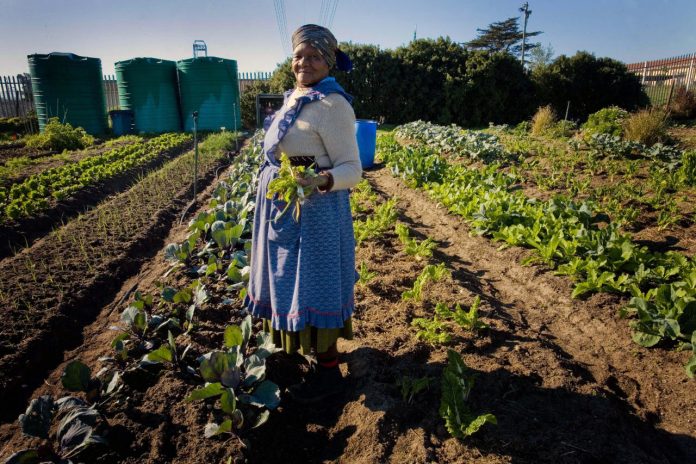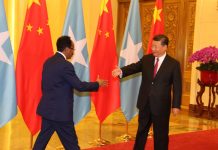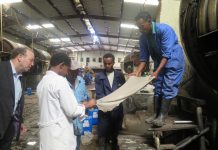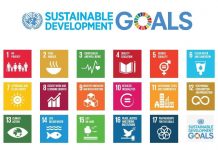Every second Joyce Sandiya isn’t tending her crops, she’s volunteering at church. So when Melinda visited Tanzania in 2012, Joyce spoke to her with the zeal of a preacher giving a sermon.
That year, for the first time, Joyce had planted a new kind of maize seed, bred to tolerate drought. When drought came, most of her crops withered and died, but her maize was more productive than ever. She sold the surplus to buy beans and vegetables and other nutritious food for her family, and had money left over to pay her children's school fees.
“That seed,” she said, “made the difference between hunger and prosperity.”
Joyce’s story, multiplied by hundreds of millions of African farmers like her, is the reason innovation in agriculture is so important.
There’s a related problem, which is that the food most Africans eat isn’t nutritious or varied enough to make up a healthy diet. For example, many Africans consume starchy staples — maize, rice, or cassava — almost exclusively. As a result, malnutrition runs rampant across a continent of farmers, affecting children’s cognitive and physical development and therefore everything from child mortality to how much they can learn in school to the productivity of laborers in the cities.
Agricultural extension, the process by which farmers get information — what seeds to plant, how to rotate crops to protect their soil, how to get the best prices at market — is complicated and expensive. Traditionally, it requires highly trained agricultural experts who know the local language and local crops in every region of vast countries.
Agricultural extension also tends to be geared toward male farmers (for example, it may focus on the crops that men tend to grow), even though women do at least half of the farm labor in Africa. This is one reason women farmers are kept from being as productive as men, even when they have equal access to seeds and fertilizer.
Investing in extension so that it helps more farmers in more places — women as well as men, smallholders as well as more commercial farmers — is the only way to reap the full benefit of innovation. One promising trend is that, as more farmers have access to mobile phones, they will be able to receive all sorts of information, from weather reports to current market prices — via text messages.
We need to reach as many farmers as possible, because the challenges farmers face are growing more difficult. Population growth in Africa means they’ll have 200 million more people to feed. And over time, climate change will make farming more difficult, with more droughts and more floods. Bigger variations in the weather will mean both more bumper crops and more poor harvests — which makes raising productivity and improving food storage crucial. If farmers can grow and store more food, they’ll be in a better position to ride out the lean years.
There are other limitations besides productivity that keep Africa from feeding itself. The lack of infrastructure across the continent, for example, means that it’s almost impossible to move food to the places it needs to go. (The most extreme case: The Democratic Republic of the Congo is the size of Western Europe, with a population of more than 60 million, but it has fewer than 2,000 miles of paved roads — the same amount as any middle-sized Western European town.) Trading within the region can be so difficult that it’s often easier to fly food in from other continents than to drive it a couple hundred miles.
But countries are building better roads. Ghana has recently cut travel time through its interior by two-thirds, simply by widening the highway that connects its agricultural heartland to the airport and seaports. Countries like Senegal are removing the constant checkpoints that make overland transportation so burdensome.
By growing more varied and nutritious food and getting it to the people who need it at the right time, Africa can achieve food security by 2030. It will still import food when it makes sense to do so, but it will also export much more, eventually achieving a net positive trade balance. Famine will strike less often — and when it does, it will be African countries that take care of the response.
One of the current memes in development is “Africa Rising.” Improving agriculture, the backbone of the African economy, can drive massive poverty reduction and improve life across the continent.
Business magnate and philanthropist William Henry “Bill” Gates III is the co-founder of Microsoft, the world’s largest PC software company. The above is excerpted from his “2015 Gates Annual Letter: Our Big Bet for the Future.”













